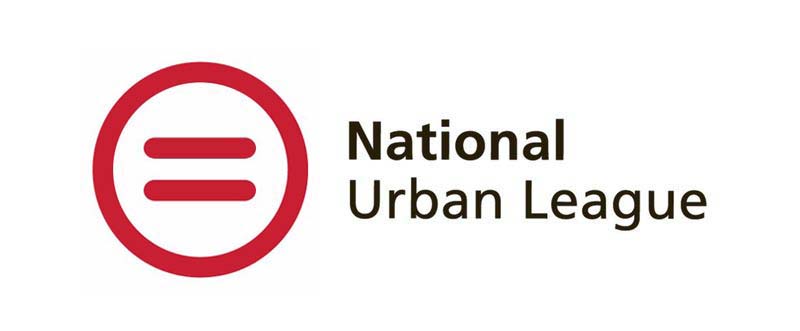You don’t need to be the great next American novelist to use writing skills. Writing skills apply to nearly every field, even if you’re not working in a creative career.
At work, writing is a hard skill we use to send informative updates, check in with coworkers, document our work, and more. In this guide, you’ll learn how to improve your writing skills, what jobs you can apply them to, and how to show them off in job applications.
Writing Skills Definition
Writing skills are the skills you use to write effectively and succinctly. A good writer is someone who can communicate their point to their audience without using too much fluff and in a way that the other person can understand.
Writing skills don’t just include the physical act of writing. Skills like research, planning and outlining, editing, revising, spelling and grammar, and organization are critical components of the writing process.
In the workplace, writing skills examples include:
- Documenting a process for someone else to learn it
- Summarizing a meeting in an email for all attendees
- Sharing a team update in Slack
- Crafting a mass email to send to prospective customers
- Communicating with a client via email to get action on next steps
- Creating a presentation to share your findings with your team
- Drafting a list of questions to a client to learn more about their needs
- Explaining an unfamiliar concept or term to a stakeholder
Why Are Writing Skills Important in the Workplace?
You don’t need the title “writer” to use writing skills at work. You might be a marketer drafting copy that will entice an audience to join your virtual event or a UX designer trying to nail the best home page text to get people to click the “learn more” button. Maybe you’re an investment banker sharing a status update with your manager or a lawyer communicating with a client over email.

Law School Experience
Want to build your writing skills so you can succeed as a lawyer? Get started by practicing the writing skills you'll need in law school, from legal analysis to case briefing.
Avg. Time: 5-6 hours
Skills you’ll build: Writing analysis, note taking, case dissection, attention to detail
While my title includes “writer” and one of my main responsibilities is writing articles, I find having good writing skills helps me across every function of my job — not just the parts that are writing new content. It takes good writing skills to write a message that makes sure my coworker understands what I’m trying to say, or to make a presentation that shows my team what I’ve been working on. To me, writing skills are more than just writing articles, but critical to how I effectively communicate, from sharing my ideas and telling my team about our progress to learning about what’s happening at my company.
Writing skills are needed in all workplaces, especially hybrid and remote ones.
According to the National Association of Colleges and Employers, written communication skills are a top skill employers look for on student resumes right now.
“We’re seeing that written communication is even more critical than it once was,” Bryana Holcomb, business and success coach, says. “Some of the most important writing skills that every employee should have include grammar, clarity, appropriate tone, and the ability to be concise when needed. One of my favorite memes on social media is the one that says, ‘This meeting could have been an email.’ The caveat to that is in order to skip out on those ‘pointless meetings,’ we have to be able to express our needs, deliverables, roles, etc. clearly and effectively through email.”
Jobs That Use Writing Skills
Almost all jobs use writing skills, just in different ways! Professionals use writing skills in their everyday work to share their ideas, learn about what their coworkers are doing, and get the answers they need to do their job. For example, even if you’re in a technical industry like software engineering, you would use writing skills to tell your team about the progress you’re making or explain technical concepts to non-technical stakeholders.
What other jobs use writing skills, and how?
| Role | Example of How They Use Writing Skills | Job Simulation to Practice |
| Lawyer | Summarizing key issues in a legal agreement for a client | Allens Commercial Transactions |
| Salesperson | Drafting an email explaining why a company should choose to buy your product | Cisco IT Sales |
| Auditor | Writing detailed questions to get insight into company purchasing processes | PwC Audit |
| Customer Support Specialist | Crafting a client email explaining how they can best utilize your product and how you can offer support | Bloomberg Client Service |
| Engineer | Creating a PowerPoint presentation to effectively communicate research results | Verizon Cloud Computing |
| Consultant | Summarizing findings from your market research for your manager | BCG Strategy Consulting |
From writing emails to your manager to giving presentations to senior leadership, writing skills are crucial to succeeding at work across every industry.
How to Include Writing Skills in a Job Application
There are two ways to show your writing skills in a job application: first, in your written materials (resume and cover letter) and second, in how you describe your writing skills in the interview.“The best way to showcase your writing skills on a job application or resume is to first have both be well written,” Holcomb says. “This means double-checking for spelling and syntax errors and making sure your thoughts are clear.”

Forage Resume Writing Masterclass
Learn how to write a resume employers want to read with this free masterclass from Forage.
Avg. Time: 5 to 6 hours
Skills you’ll build: Resume writing, professional branding, transferable skills, industry keywords, showcasing outcomes, standing out
Every written correspondence with the hiring manager is a chance to show off your writing skills. Be concise with no grammatical errors.
In the interview, describe how your writing — an email, copy, report, or essay — led to a specific accomplishment.
“Highlighting the ways you have leveraged writing effectively in your previous experiences is also important,” Holcomb says. “Whether you talk about the sales copy that helped your company land a multi-figure client or the emails you crafted that shifted the company culture for the better, all of your experiences count and should be highlighted.”

Interview Success
Learn how to ace an interview by answering five commonly asked interview questions.
Avg. Time: 4-5 hours
Skills you’ll build: Communication, presentation, public speaking, poise, attention to detail, analytical thinking, problem-solving
How to Improve Your Writing Skills
1. Start With Your Audience
Before you start writing, think about who you’re writing for. Your audience affects how much context you give, what tone you use, and even the message you want the audience to take away. Ask yourself:
- Why am I communicating with them, specifically?
- What information do they already know? What context should I give them, if any?
- What do I want this person to do after I’ve sent my message?
2. Know the Right Tone
Every industry expects a different level of professionalism. So how do you know how formal to be and what corporate jargon to use?
Start by looking at the job description, company website, and other company communications, including employee LinkedIn posts. Of course, it’s always better to err on the side of formality.
If you want to try your hand at professional writing before you apply, try one of Forage’s free job simulations. Not only will you get a chance to do the kind of work you would in an entry-level role, but you’ll learn how to communicate that work through client emails, email updates to your manager, and more.
3. Get to the Point
“Writing an email is essentially like writing a media pitch and trying to capture the attention of a reporter,” Jamie Levin, communications consultant, says. “Think about it, you have about 11 seconds to capture the attention of your reader, so what’s most important? I can tell you what’s not…unnecessary words, adjectives that don’t add value and taking the time to explain something that would be much better off communicated in a face-to-face conversation.”
Before sending an email, update, or other written communication, challenge yourself to decrease your word count. For example, see if you can make the 200-word email only 150. This exercise will help you know if you have any “fluff” words that might be overcomplicating your writing.
4. Edit and Proofread
Sometimes, your best editor is your future self. Take a step back after you’ve finished writing something — even if it’s an email — and look back at it five minutes or even an hour later (if you have the time) to edit and proofread.
Don’t be afraid to rely on outside sources to help you catch spelling and grammar errors. Sites like Grammarly can help make your writing error-free and suggest different wording depending on your audience’s knowledge level and the tone you’re aiming for.
5. Seek Outside Support
Holcomb recommends taking advantage of online and in-person classes that can help improve your writing skills.
“While you’re strengthening your skills in courses you can also seek support from people — this can be colleagues, managers, or mentors — by asking them to proof your work and provide feedback before you make your final submissions.”
Feedback is especially important in the job application process. For example, having another set of eyes on your cover letter can help ensure you submit something clear, compelling, and error-free.
6. Don’t Overthink It
While there’s a lot you can do to improve your writing skills, you don’t need to labor over every written communication. In an increasingly virtual world, there are so many emails and messages that you’ll waste valuable time trying to plan, edit, and revise every one.
“Don’t overthink – it’s an email. It shouldn’t take 20 minutes to draft, and then additional 20 minutes spent thinking about how it might be interpreted. Get to the point,” Levin says. “Remember, it’s only an email (or a Teams chat) and it often requires additional elaboration in the form of verbal communication and an open discussion, whether that be in-person or via a video chat.”
Instead, focus on improving your writing and communication skills as a whole. With practice, those short messages will become second-hand nature.
Career Aptitude Test
What careers are right for you based on your skills? Take this quiz to find out. It’s completely free — you’ll just need to sign up to get your results!
Image credit: RF._.studio / Pexels

